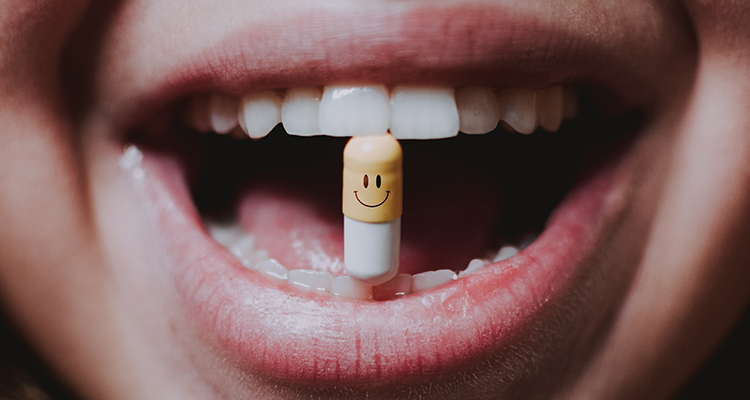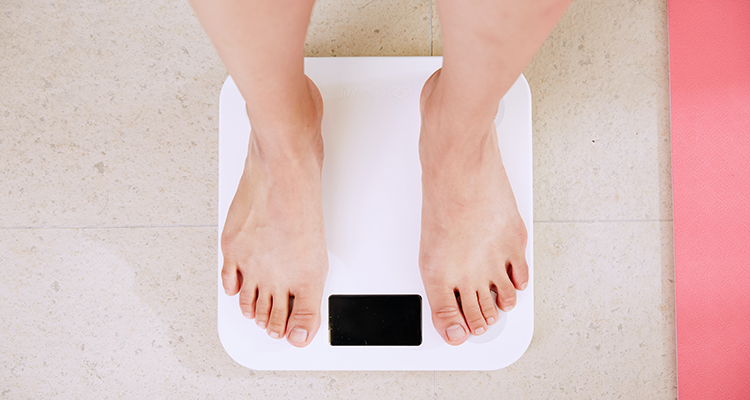Should I Take Seroquel for My Insomnia?

“I will lift mine eyes unto the pills. Almost everyone takes them, from the humble aspirin to the multi-colored, king-sized three “deckers,” which put you to sleep, wake you up, stimulate and soothe you all in one. It is an age of pills.”
~Malcolm Muggeridge
Content
What is Seroquel?
Seroquel, also known as quetiapine, is an antipsychotic medication that reduces or eliminates disturbing, upsetting, or psychotic thoughts – thoughts that can lead to “sleeplessness” or insomnia. Because of its sedating effects, Seroquel is often prescribed to people, who have a hard time “calming down” or relaxing.
Seroquel’s sedative properties can lower your blood pressure, so it is important to regularly monitor your blood pressure, while on this medication. Ultimately, Seroquel affects your neurotransmitters (brain chemicals), altering the way they communicate with each other, and thus, how you feel and behave.
What is the Purpose of Seroquel?
Seroquel is used to treat schizophrenia in adults and children, who are 13-years-old and older. It is also used to treat bipolar disorder in adults and children, who are10-years-old and older. And, sometimes, Seroquel is combined with antidepressants to treat major depressive disorder in adults.
How Does Seroquel Work?

Seroquel interacts with various brain receptors to calm electrical impulses in your brain, improve your mood, relax your body, and alleviate psychotic thoughts. However, researchers are still somewhat baffled about its exact function within the brain and body. Some studies suggest that Seroquel reduces or prevents dopamine and serotonin from activating in your brain.
Too much dopamine can prevent you from becoming sleepy before bed (it keeps you alert), while too much serotonin can trigger wakefulness, delay sleep, and stop you from falling into a deeper sleep (REM sleep).
Reducing these levels not only improves your mood, but also calms your mind and body (reducing or eliminating disturbing thoughts, anxiety, or depression), so you can peacefully fall asleep.
What is the Recommended Dosage?
Experts recommend that the initial dosage be between 150mg and 800mg, depending on the condition. After the initial dosing, the dosing can be increased or decreased to 750mg or 800mg, depending upon your response and tolerability to the medication.
Do I Need to Take This Medication with Food?

No, however, it is recommended that you take it with food to avoid gastrointestinal distress (i.e. nausea, vomiting, upset stomach, diarrhea, etc.). Most experts just recommend that you take Seroquel with an 8oz glass of water. Keep in mind that you can take immediate-release Seroquel with or without food.
Conversely, it is suggested that you take Seroquel XR with a light meal (fewer than 300 calories) or completely without food. And, that you take this form of Seroquel in the evenings. If you are prescribed extended-release Seroquel, do not crush, chew, or break the tablets – swallow each one whole.
How Long Does It Take for Seroquel to Take Effect?
It can take up to 1.5 hours before you begin to feel the effects (improved mood and sleep quality) of immediate-release Seroquel. Conversely, it can take up to 6 hours before you notice the effects of extended-release Seroquel. However, you may begin to feel calmer and more relaxed almost immediately after taking either form of Seroquel. But, overall, expect to see a noticeable improvement in your symptoms within 2-3 weeks.
Note: Understand, however, that it may take up to 6 weeks before you experience the full effects of the medication.
What Are the Benefits of Seroquel?

Seroquel may help “quiet” psychotic and distressing thoughts in schizophrenics, over the age of 13. It may also reduce hallucinations and delusions, commonly found conditions involving psychosis, such as in schizophrenia. Seroquel also appears to be beneficial for children, over the age of 10, who are struggling with bipolar disorder.
One of the main benefits of Seroquel is its sedative properties. It can alleviate your worries and calm your mind, so you feel more balanced, happier, and more at-ease. A “quiet” mind and a relaxed body can lead to longer and sounder sleep. Because Seroquel can make you sleepy, it is sometimes prescribed “off-label” to insomniacs desperate to get some sleep. Seroquel is also sometimes prescribed with antidepressants to help combat depression and anxiety and improve sleep quality.
Will I Experience Side-Effects with Seroquel?

Possibly.
If you are between the ages of 18 and 60, in fairly good health and do not take prescription medications, Seroquel side-effects may resemble the following:
- Confusion, headache, sleepiness, depression, dry “cotton” mouth, and/or fuzzy vision
- Decreased blood pressure, especially when you stand up after being seated
- Increased blood pressure with little-to-no movement
- Falls due to its sedative effects and lower blood pressure
- Serotonin syndrome due to medicine interactions or too high of a dosage. Symptoms of a serotonin syndrome include an altered mental state involving unrest, excitement hallucinations, accelerated heart rate, coma, delirium, lightheadedness, facial flushing, muscle tremors or rigidity, and gastrointestinal distress (nausea, upset stomach, vomiting, constipation, and diarrhea).
- Neuroleptic malignant syndrome (NMS) involving an elevated body temperature, muscle tremors or rigidity, and/or mental illness
- Bleeding, especially if you are also taking other medications that increase your risk of bleeding
- Anxiety, nervousness, or excessive worry
- Insomnia
- Tardive dyskinesia or repetitive and involuntary facial movements
- Significant weight loss or sudden weight gain
- Mania or a manic episode in people, who are yet to be diagnosed with bipolar disorder.
- A reduction in your sodium level (hyponatremia), especially in older adults or people taking diuretics. These individuals already have an increased risk of dehydration.
- If you suddenly stop Seroquel, you may experience discontinuation syndrome – agitation, mood swings, vertigo, micro electric shocks, headaches or migraines, and/or mental confusion.
- Elevated blood sugar levels that could lead to diabetes
- Elevated cholesterol or triglyceride levels
- Hypothyroidism (underactive thyroid)
- An increased risk of suicidal ideation (thoughts and behaviors). This is especially prevalent in young adults under the age of 25.
Note: Children and older adults with chronic health conditions, like kidney, liver, or heart disease, diabetes, asthma, seizures, and/or those, who take other psychotropic medications, are more vulnerable to Seroquel’s side-effects.
What are the Most Common Seroquel Side-Effects?

Listed below are the most common side-effects associated with Seroquel use:
- Vocal shakiness and/or problems speaking clearly and coherently
- Lightheadedness, sleepiness, and fatigue
- Weakness and poor energy
- Accelerated heart rate
- Nasal congestion
- Increased hunger and weight gain
- Gastrointestinal distress – upset stomach, nausea, vomiting, diarrhea, constipation;
- Dry “cotton” mouth
- Restricted movement
Are There Any Other Warnings I Should Know About?

Yes, there are a few things you should keep in mind if you plan to take Seroquel for sleep, such as:
- It is important to never take more Seroquel than prescribed. Also, never take it for longer than prescribed by your doctor. Taking too much Seroquel for too long can lead to permanent immobility, involuntary tremors and/or uncontrollable muscle spasms.
- If you are 18-years-old or younger, do not take the extended-released Seroquel because it can negatively affect your brain chemicals and hormone levels.
- This medication can cause severe sedation, so avoid alcohol when taking this medication. Seroquel (with or without alcohol or drug use) can affect your ability to drive or operate machinery.
- Older adults with dementia-related psychosis should not take Seroquel because it could increase their risk of death.
- If you have the following symptoms, stop using the medication and call your doctor immediately – extremely stiff or rigid muscles, a high fever, lightheadedness, mental confusion, excessive perspiration (sweating), confusion, erratic heartbeats, muscle tremors, involuntary muscle movements, hazy vision, eye pain, increased thirst and urination, increased hunger, fruit-smelling breath, muscle weakness, nausea, upset stomach, nausea, diarrhea, and/or vomiting.
- Some children and young adults, who take Seroquel, may initially experience suicidal ideation (thoughts and behaviors). However, once their bodies become accustomed to the medication these disturbing thoughts and behaviors typically go away. Pay attention to any changes in mood or suicidal thoughts and call your doctor or 911 immediately.
- Understand that Seroquel is not FDA-approved for dementia-related psychosis or insomnia, although it is sometimes prescribed for both conditions.
What Do Researchers Say?
Listed below are studies on the safety and effectiveness of using Seroquel to treat sleep disorders like insomnia:

- A 2012 review found that when used for insomnia the typical dosage falls between 25mg to 200mg, per day.
- As mentioned above, Seroquel has not been approved by the Food and Drug Administration (FDA) to treat insomnia. However, due to its sedation properties, it’s still used “off-label” as a temporary sleep aid. Determining exactly how often Seroquel is prescribed for insomnia and other sleep disorders is challenging, however, research suggests that it is prescribed quite often for “sleeplessness.”
- A 2017 study found that out of 720 participants, approximately 12% were prescribed Seroquel for “sleeplessness.” According to researchers, approximately 57% of the prescriptions were solely for insomnia.
- According to another 2012 review, Seroquel, even at low doses, can cause a variety of health woes, such as mood swings, sudden weight gain, poor appetite, or increased appetite.
- Because of the safety concerns and a lack of effectiveness data, researchers have concluded that Seroquel should not be used to treat “sleeplessness” or insomnia.
- Similarly, a 2016 literature review found that Seroquel does not appear to significantly improve sleep quality.
- Lastly, a 2018 comprehensive review indicated that Seroquel has little-to-no effect on primary insomnia. However, researchers did suggest that Seroquel may be an effective treatment for secondary insomnia caused by bipolar disorder. Keep in mind that these results stem from limited evidence.
Note: High-quality studies on the effects of Seroquel on sleep quality are extremely limited. However, researchers suggest that Seroquel’s effectiveness may depend on if the medication is being used to treat primary insomnia or secondary insomnia (a symptom of another condition).
How Can I Reduce or Prevent Seroquel Side-Effects?
Listed below are ways you can reduce or prevent Seroquel side-effects:

- Take immediate-release Seroquel pills with food.
- Take extended-release Seroquel pills in the evenings with food or following a light meal or snack.
- Swallow the extended-release pills whole. Do not crush or chew them.
- Begin with a lower dose and then gradually increase the dosage once your body develops a tolerance to the medication and dosage. This will help you avoid Seroquel side-effects, such as weight gain, mood swings, low blood pressure, and/or mental fogginess.
- Gradually stand up from a chair or bed can help you avoid dizziness.
- If Seroquel makes you sleepy, do not drive vehicle, operate machinery or perform dangerous tasks while using it.
- If you experience significant mood swings and/or if these mood swings appear to be worsening to the point that you feel suicidal, stop the medicine and immediately call 911 or your doctor.
- While taking Seroquel, avoid alcohol and drugs because they can intensify Seroquel’s sedative effects.
- Stay hydrated and do not “over-exercise.”
- Call your doctor if you start to experience abnormal muscle movements (facial twitches, etc.).
Are There Safer Sleep Aids? Are There Safer Sleep Aids?
Yes!
Listed below are “safer” sleep aids that can be used to treat insomnia:
- Prescription Medications – Prescription sleep aids can make it easier for you to fall asleep and stay asleep throughout the night. For instance, benzodiazepines and antidepressants like doxepin (Silenor), ramelteon (Rozerem), triazolam (Halcion), zaleplon (Sonata), and zolpidem (Ambien) have sedative properties that can improve your sleep quality but do not contain the same adverse effects as Seroquel.
- OTC Medications – Over-the-counter sleep mediations, like antihistamines and nausea medications (dimenhydrinate) can relax your body and cause you to feel tired, sleepy, and drowsy.
- Supplements – Natural supplements like melatonin, valerian root, magnesium, and lavender can promote calmness and relaxation, thus, helping you fall into a peaceful sleep.
- Online sleep programs – Online sleep programs, like Somnus Therapy, use cognitive-behavioral therapy (CBT-I) to help you get into the right mindframe for sleep. Somnus Therapy uses a variety of techniques to help you change thought patterns that may be keeping you awake at night. Its goal is to help you reframe how your mind perceives sleep, so you actually look forward to it. The best thing about online sleep programs is you can do them from the comfort of your bed.
- Relaxation techniques – Relaxation techniques like guided meditation, yoga, tai chi, journaling, biofeedback, taking a warm bath, reading, and breathing exercises can relax your mind and body when bedtime rolls around.
- Sleep restriction – Limiting the amount of sleep you get one night may help you fall asleep more quickly and sleep longer the next night.
- Light therapy – A light box may help rebalance your circadian rhythm (sleep/wake cycles), especially if you suffer from SAD (seasonal affective disorder).
- Acupuncture – A 2012 review found that acupuncture may improve sleep quality in some insomniacs.
- Exercise – Regular daytime exercise may help you sleep better at night. But, avoid exercising too close to your bedtime.
- Reduced nap times – Avoid long naps, especially in the afternoons or evenings because they can keep you up at night.
- Limited caffeine and alcohol – In other words, limit how much alcohol and caffeine and alcohol you consume, especially before bed. Caffeine and alcohol are considered “stimulants.”
- Eat in moderation – Avoid eating a large meal shortly before bed because too much food in your stomach can make you too uncomfortable to fall asleep.
- Put down your cigarette – If you are a smoker, make an effort to quit.
- Develop a consistent bedtime routine – In other words, develop and stick to your sleep routine (i.e. going to bed and waking up at the same time each day and night).
- Assign a specific purpose for your bedroom – Designate your bedroom as a place to only sleep and have sex – that’s it. Also, don’t lie in bed and watch television or play games on your phone or tablet because the blue light from the screen can overstimulate you and prevent you from falling asleep.
Summary
Although, one of the side-effects of Seroquel is sleepiness, based on the evidence, it is not recommended for insomnia or other sleep disorders. The main reason why researchers and experts warn against using Seroquel for “sleeplessness” is there simply is not enough data on its effectiveness and safety for this purpose.

The good news is there are a variety of safe and effective sleep aids available for people, who are desperate to get some zzz. These treatments may involve other prescription medications, OTC sleep aids, supplements, online insomnia treatment programs, and/or lifestyle changes. Remember, getting a good night’s sleep shouldn’t involve risking your health and well-being.
References
- Drugs.com. (2020). Seroquel dosage. Retrieved from https://www.drugs.com/dosage/seroquel.html
- Drugs.com. (2021). Seroquel. Retrieved from https://www.drugs.com/seroquel.html
- Vandergriendt, C. (2020). Is it safe to take quetiapine to help you sleep? Healthline. Retrieved from https://www.healthline.com/health/quetiapine-for-sleep#about-quetiapine
- Vandergriendt, C. (2020). What’s the difference between dopamine and serotonin? Healthline. Retrieved from https://www.healthline.com/health/dopamine-vs-serotonin
- Gefvert, O., Bergström, M., Långström, B., Lundberg, T., Lindström, L., & Yates, R. (1998). Time course of central nervous dopamine-D2 and 5-HT2 receptor blockade and plasma drug concentrations after discontinuation of quetiapine (Seroquel) in patients with schizophrenia. Psychopharmacology,135(2), 119-26. Retrieved from https://pubmed.ncbi.nlm.nih.gov/9497016/
- Maneeton, N., Maneeton, B., Woottiluk, P., Likhitsathian, S., Suttajit, S., Boonyanaruthee, V., & Srisurapanont, M. (2016). Quetiapine monotherapy in acute treatment of generalized anxiety disorder: a systematic review and meta-analysis of randomized controlled trials. Drug Des Devel Therapy, 10, 259-276. Retrieved from https://doi.org/10.2147/DDDT.S89485
- Drugs.com. (2021). Seroquel dosage. Retrieved from https://www.drugs.com/dosage/seroquel.html
- Fookes, C. (2020). Seroquel: 7 things you should know. Drugs.com. Retrieved from https://www.drugs.com/tips/seroquel-patient-tips#:~:text=Peak%20levels%20of%20Seroquel%20are%20reached%201.5%20hours,for%20the%20full%20effects%20to%20be%20seen.%207
- Laino, C. (2008). Seroquel may help depression, anxiety. WebMD. Retrieved from https://www.webmd.com/mental-health/news/20080506/seroquel-may-help-depression-anxiety#:~:text=Those%20taking%20Seroquel%20showed%20greater%20improvement%20in%20depression,of%20treatment%2C%2025%25%20were%20in%20remission%2C%20he%20says
- Seladi-Schulman, J. (2019). What Is neuroleptic malignant syndrome? Healthline. Retrieved from https://www.healthline.com/health/neuroleptic-malignant-syndrome
- Bullock, C. & Bernstein, C. A. (2010). Discontinuation syndrome and antidepressants. Harvard Medical School. Retrieved from https://www.health.harvard.edu/blog/discontinuation-syndrome-and-antidepressants-2019040416361
- Mayo Clinic. (2020). Hyponatremia. Retrieved from https://www.mayoclinic.org/diseases-conditions/hyponatremia/symptoms-causes/syc-20373711
- Mayo Clinic. (2020). Hypothyroidism (underactive thyroid). Retrieved from https://www.mayoclinic.org/diseases-conditions/hypothyroidism/symptoms-causes/syc-20350284
- National Institute of Neurological Disorders and Strokes. (2021). Tardive dyskinesia. Retrieved from https://www.ninds.nih.gov/Disorders/All-Disorders/Tardive-Dyskinesia-Information-Page
- Mayo Clinic. (2020). Serotonin syndrome. Retrieved from https://www.mayoclinic.org/diseases-conditions/serotonin-syndrome/symptoms-causes/syc-20354758
- Atkin, T., Comai, S., & Gobbi, G. (2018). Drugs for insomnia beyond benzodiazepines: Pharmacology, clinical applications, and discovery. Pharmacology Review, 70(2), 197-245. Retrieved from https://pubmed.ncbi.nlm.nih.gov/29487083/
- Thompson, W., Quay, T. A. W., Rojas-Fernandez, C., Farrell, B., & Bjerre, L. M. (2016). Atypical antipsychotics for insomnia: A systematic review. Sleep Medicine, 22, 13-17. Retrieved from https://pubmed.ncbi.nlm.nih.gov/27544830/
- Anderson, S. L., & Vande Griend, J. P. (2014). Quetiapine for insomnia: A review of the literature. Am J Health Syst Pharm, 71(5), 394-402. Retrieved form https://pubmed.ncbi.nlm.nih.gov/24534594/
- Coe, H. V., & Hong, I. S. (2012). Safety of low doses of quetiapine when used for insomnia. Ann Pharmacotherapy, 46(5), 718-22. Retrieved from https://pubmed.ncbi.nlm.nih.gov/22510671/
- Chow, E. S., Zangeneh-Kazemi, A., Akintan, O., Chow-Tung, E., Eppel, A., & Boylan, K. (2017). Prescribing practices of quetiapine for insomnia at a tertiary care inpatient child and adolescent psychiatry unit: A continuous quality improvement project. Journal of the Canadian Academy of Child and Adolescent Psychiatry, 26(2), 98–103. Retrieved from https://www.ncbi.nlm.nih.gov/pmc/articles/PMC5510938/
- FDA. (2013). Seroquel dosage sheet. Retrieved from https://www.accessdata.fda.gov/drugsatfda_docs/label/2013/020639s061lbl.pdf
- Somnus Therapy. (2021). Somnus therapy fact sheet. Retrieved from https://somnustherapy.com/#Faqs-sec|1
- Cronkleton, E. (2019). 10 Breathing Techniques for Stress Relief and More. Healthline. Retrieved from https://www.healthline.com/health/breathing-exercise
- Krans, B. (2017). Biofeedback. Retrieved from https://www.healthline.com/health/breathing-exercise
- Sauer, M. (2019). 11 ways tai chi can benefit your health. Healthline. Retrieved from https://www.healthline.com/health/tai-chi-benefits
- Link, R. (2017). 13 benefits of yoga that are supported by science. Healthline. Retrieved from https://www.healthline.com/nutrition/13-benefits-of-yoga



















